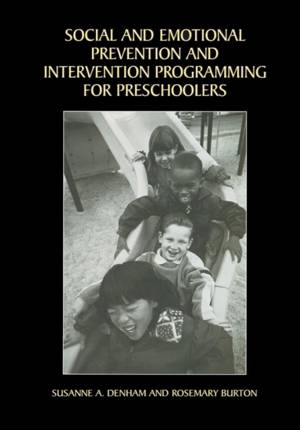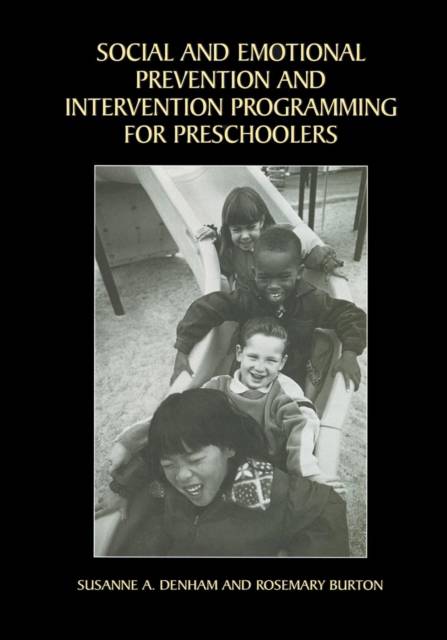
- Retrait gratuit dans votre magasin Club
- 7.000.000 titres dans notre catalogue
- Payer en toute sécurité
- Toujours un magasin près de chez vous
- Retrait gratuit dans votre magasin Club
- 7.000.0000 titres dans notre catalogue
- Payer en toute sécurité
- Toujours un magasin près de chez vous
Social and Emotional Prevention and Intervention Programming for Preschoolers
Susanne A Denham, Rosemary BurtonDescription
Social and Emotional Prevention and Intervention Programming for Preschoolers rests on the idea that young children, under optimal circumstances, develop substantial abilities in social and emotional domains by the time they enter school. These abilities contribute to their success and well-being during these early years, but even more importantly, to both their successful adaptation to school (personal and academic) and their long-term mental health.
The chapters of this volume present theoretical foundations for and explanations of what important adults in young children's lives - preschool teachers, daycare providers, parents - can do to encourage the development of such social-emotional abilities, including promoting secure attachment relationships, providing positive behavior guidance, and assisting children in developing emotion knowledge, emotion regulation, social problem-solving skills, and other positive social behaviors.
In addition, the book reviews the current state of early childhood programming in each of these crucial areas, with the addition of a chapter on emergent parent programming on emotion coaching. Recommendations are made for making such programming work, for assessing individual children's development and program efficacy, and necessary future directions for this area are detailed.
Spécifications
Parties prenantes
- Auteur(s) :
- Editeur:
Contenu
- Nombre de pages :
- 251
- Langue:
- Anglais
Caractéristiques
- EAN:
- 9781461349037
- Date de parution :
- 15-09-12
- Format:
- Livre broché
- Format numérique:
- Trade paperback (VS)
- Dimensions :
- 178 mm x 254 mm
- Poids :
- 476 g

Les avis
Nous publions uniquement les avis qui respectent les conditions requises. Consultez nos conditions pour les avis.






